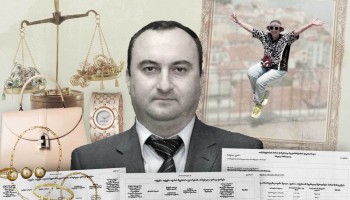Prosecutors would then have six months to prove whether or not the property was acquired illegally.
While some are praising the law as an important step in tackling corruption in Armenia and bringing it closer to European standards, others have deep misgivings about how the law could be implemented.
For one, while it applies to properties going back some thirty years, there are no provisions for owners who can’t prove the legitimacy of their ownership due to lost or damaged documents.
“The next problem, in my opinion, is that they demand that the owner of the property prove that he has acquired it in a conscientious way,” Varuzhan Hoktanyan, program manager at Transparency International's Anti-Corruption Center, told the Armenian news outlet 168.am.
“Now the question is, if he doesn't have that evidence, what will they do?” he asked, questioning whether owners are really obliged by someone to keep such evidence for so many years. “Is there such a legal act?” he asked.
Nor are there any provisions as to what the state will do with properties it would seize - something that former Justice minister Arpine Hovhannisyan asked about during an appearance on Armenia's 5 TV channel.
Following the passing of the unexplained wealth law, the Armenian parliament is considering legislation that would make Armenians’ private banking information available without a court order, Hetq.am reported.






